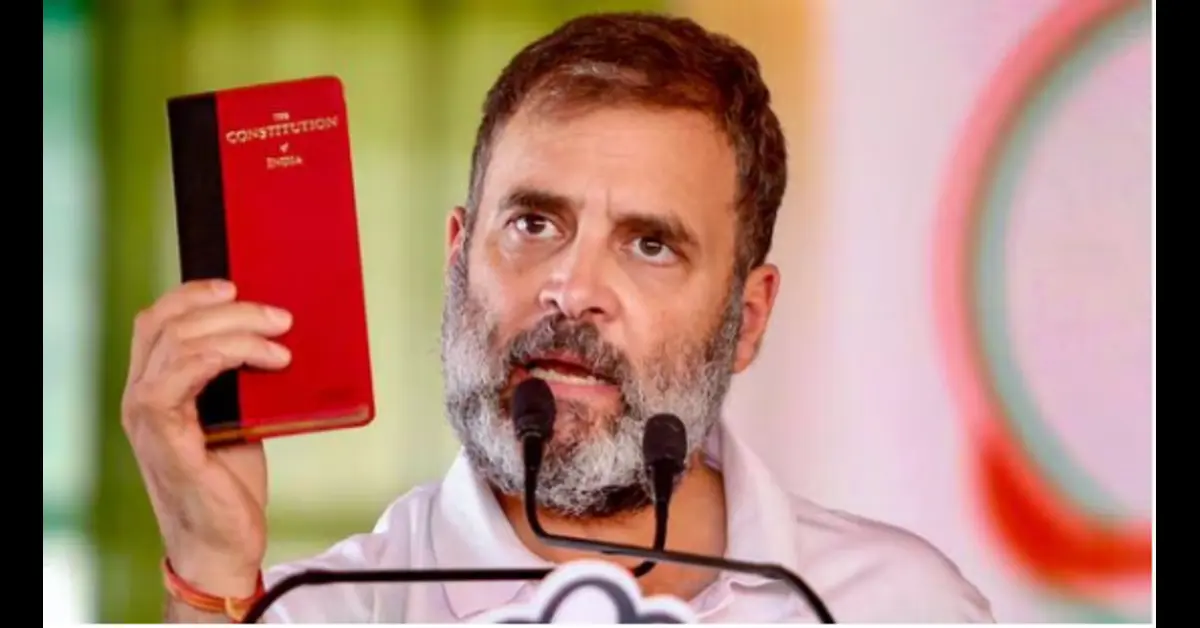Congress leader Rahul Gandhi has announced that if his party wins power in the upcoming 2024 Lok Sabha Election, the reservation cap will be raised beyond 50%. In a bold statement made on Monday, Gandhi asserted that his party would abolish the existing limit and increase the reservation cap for the economically weaker sections (EWS), including Scheduled Castes (SC), Scheduled Tribes (ST), and Other Backward Classes (OBC).
Congress’s Commitment
In its manifesto for the Lok Sabha Elections 2024, the Congress guarantees a constitutional amendment to lift the 50% cap on reservations for SC, ST, and OBC. This includes extending the 10% reservation for EWS across all castes and communities. Rahul Gandhi has emphasized the importance of raising the cap as a key issue for the elections.
- Educational Reservations: The Congress aims to enact a law referencing Article 15(5) of the Constitution to provide reservations in private educational institutions for SC, ST, and OBC communities. This would help increase access to education for historically marginalized groups.
- Workforce Expansion: The Congress proposes to provide a 10% reservation for EWS in jobs across all castes and communities. This policy aims to uplift economically disadvantaged groups and ensure equitable representation in the workforce.
- Pledges to Endorse SC, ST, and OBC Welfare: The Congress party also intends to pass legislation to support the welfare and representation of SC, ST, and OBC in various sectors, as well as ensure their full participation in India’s growth.
BJP’s Stance on Reservation
Union Home Minister Amit Shah has reiterated that reservations for SC, ST, and OBC will not end as long as the BJP and Prime Minister Narendra Modi are in power. Shah emphasized that BJP intends to uphold and support existing reservation policies for marginalized communities.
- Muslim Reservation: Shah clarified that the BJP deems Muslim reservations unconstitutional and intends to eliminate them in Telangana if elected. Instead, the BJP plans to direct quotas towards SC, ST, and OBC communities.
- Empowerment Initiatives: The BJP plans to empower women with the Nari Shakti Vandan Adhiniyam, offering reservations to women in the Lok Sabha and State Legislative Assemblies.
- Ensuring Representation: The BJP’s manifesto also includes a commitment to ensure adequate representation for SC, ST, and OBC through district-level committees. These committees will oversee the distribution of welfare schemes to the grassroots level.
- Economic Opportunities: The BJP plans to expand livelihood opportunities for SC, ST, and OBC families through the doubling of the MUDRA loan limit to ₹20 lakh. Successful programs such as PM Svanidhi and PM Vishwakarma Yojana will also be expanded.
- Educational Support: BJP plans to expand scholarships for meritorious students from OBC, SC, and ST families to ensure they are not deprived of higher education.
Conclusion
As the Lok Sabha Election 2024 approaches, the contrasting visions of Congress and BJP on reservations are becoming more pronounced. Congress aims to substantially increase reservations for SC, ST, and OBC groups while also extending support to EWS. The BJP’s focus is on preserving the current reservation system while offering economic opportunities and empowerment initiatives for these groups. Both parties seek to appeal to the electorate by promising significant changes to India’s reservation policy. As the election draws closer, voters will need to weigh these proposals carefully and consider which party’s vision aligns most closely with their own priorities and values.
Arvinder Singh Lovely Rejoins BJP: Analysis and Implications 2024
FAQs on Reservation Policies and Lok Sabha Election 2024
Here are some frequently asked questions about reservation policies in India and how they relate to the upcoming Lok Sabha Election 2024:
- What is the current reservation cap in India?
- Currently, reservations for Scheduled Castes (SC), Scheduled Tribes (ST), and Other Backward Classes (OBC) are capped at 50%. Additionally, there is a 10% reservation for Economically Weaker Sections (EWS) across all castes and communities.
- What does Congress propose regarding the reservation cap?
- The Congress party proposes to increase the reservation cap beyond 50%. It plans to pass a constitutional amendment to remove the existing limit, aiming to provide more opportunities for economically disadvantaged groups, including SC, ST, and OBC communities.
- What is the BJP’s stance on reservations?
- The BJP maintains that reservations for SC, ST, and OBC communities should remain in place as long as the party is in power. Union Home Minister Amit Shah has stated that the party will continue to support these reservations while opposing Muslim reservations.
- Will Congress provide reservations in private educational institutions?
- Yes, Congress plans to enact a law under Article 15(5) of the Constitution to provide reservations for SC, ST, and OBC communities in private educational institutions.
- What are some initiatives the BJP proposes for SC, ST, and OBC communities?
- The BJP has proposed expanding livelihood opportunities by doubling the MUDRA loan limit to ₹20 lakh. The party also plans to expand successful programs like PM Svanidhi and PM Vishwakarma Yojana, among others. Additionally, the BJP aims to offer scholarships to meritorious students from OBC, SC, and ST families.
- What does Congress propose for Economically Weaker Sections (EWS)?
- Congress promises to provide a 10% reservation in jobs and educational institutions for Economically Weaker Sections (EWS) of all castes and communities.
- What is the BJP’s plan for women’s representation?
- The BJP plans to empower women by enacting the Nari Shakti Vandan Adhiniyam, which will provide reservations for women in the Lok Sabha and State Legislative Assemblies.
- What changes could be expected in the Lok Sabha Election 2024 regarding reservations?
- Depending on which party wins the election, changes in reservation policies could include increasing the reservation cap beyond 50%, expanding reservations to private educational institutions, and providing more opportunities for EWS and marginalized communities.
